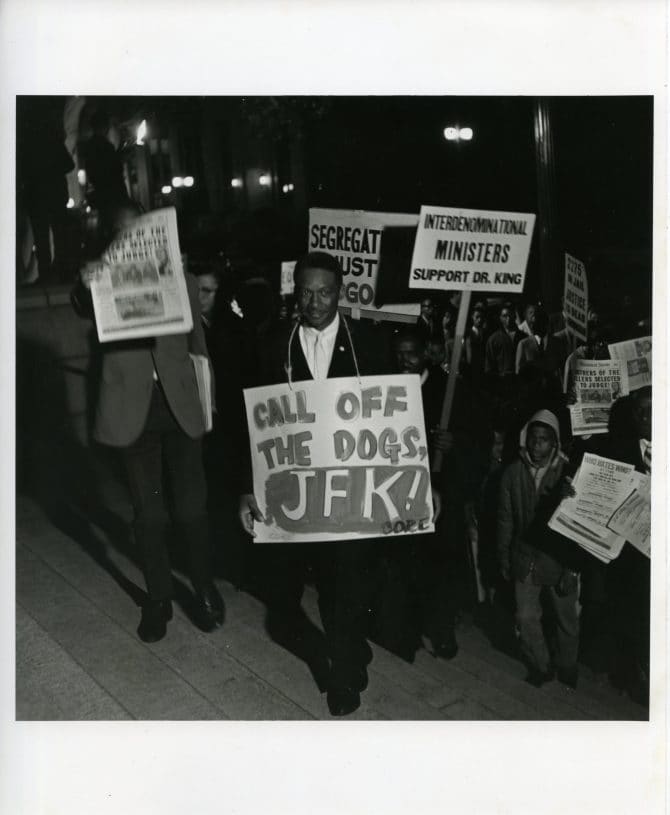
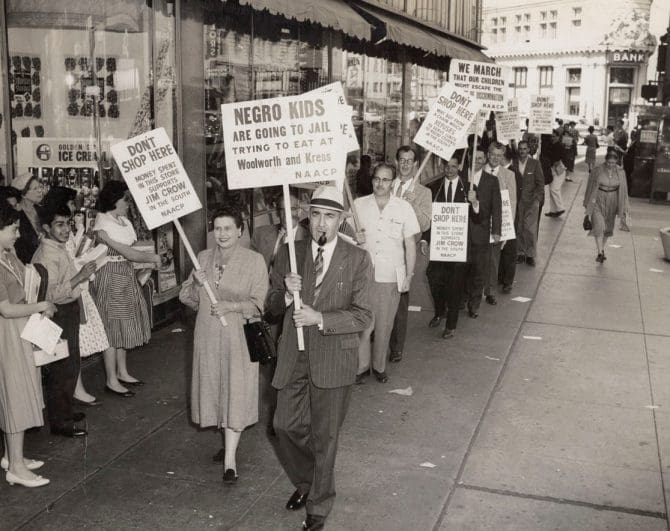
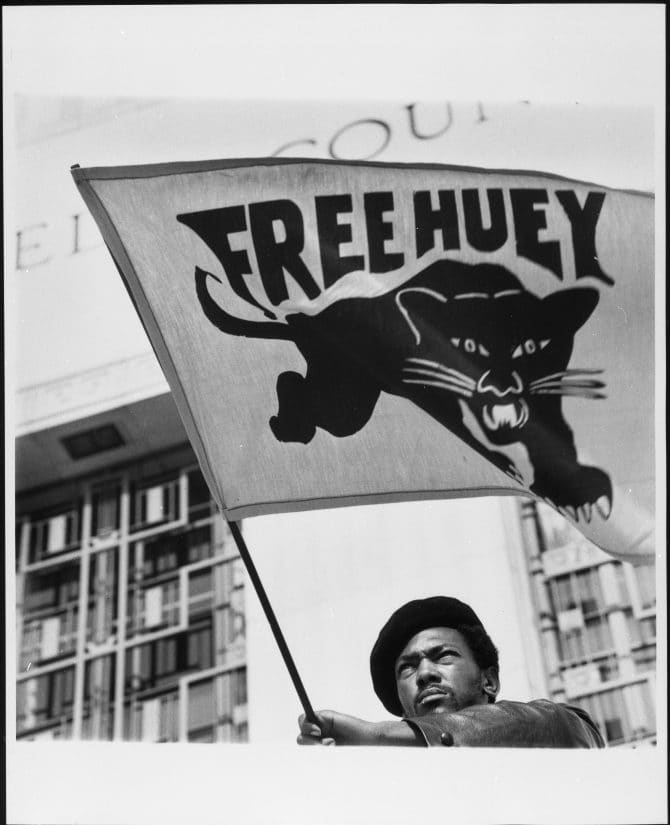
Prepare for a visit to AAMLO with these special topic resource guides.
This resource guide is intended to help users locate holdings related to the history of Black protest and political and social movements to bring justice, healing, and freedom for Black Lives.
Please also see the Oakland Public Library #BlackLivesMatter Resource Series for additional books, articles and videos to prompt discussion and action:
- Institutional Racism: History and Context
- Protest, Social Movements & Community Solutions
- Police Conduct, Race and the Justice System
- Talking to Kids About Racism and Justice
- Evaluating Children’s Books about Police
This resource highlights holdings in the following areas:
● Selected Library Material at AAMLO
● Selected Archival Collections at AAMLO
Other collections may contain relevant materials. Please contact AAMLO (aamlo@oaklandlibrary.org) with any questions or to schedule an appointment to view materials in person.
Selected Library Materials
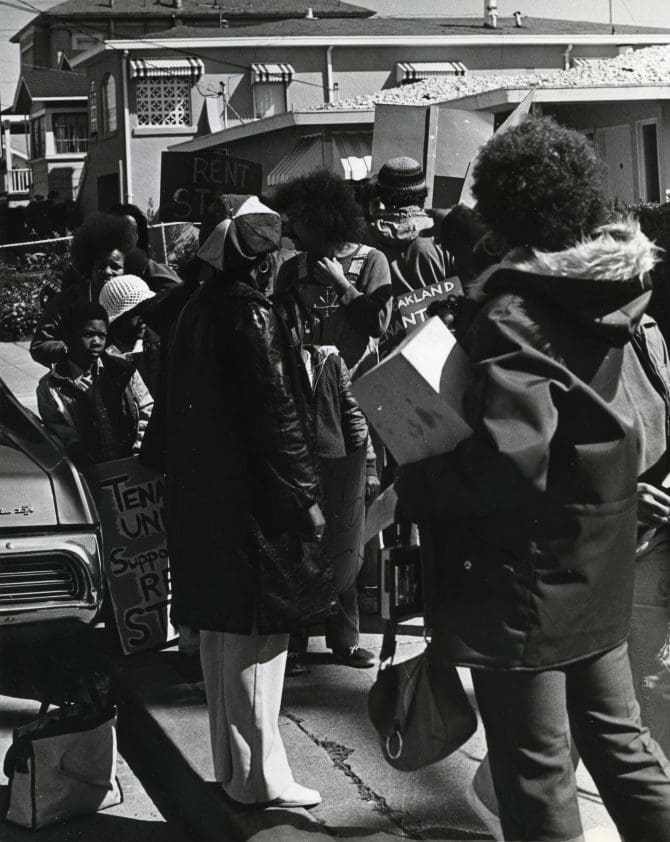
Black Protest: History, Documents, and Analyses: 1619 to the Present
Black Protest: 350 Years of History, Documents, and Analyses
Protest & Praise: Sacred Music of Black Religion by Jon Michael Spencer
Mary Ann Shadd Cary: the Black Press and Protest in the Nineteenth Century by Jane Rhodes
We Did What We Had to Do: Black Women and the Struggle for Civil Rights in Oakland, California, 1900-1940 by Jessica Christina Harris
Pullman Porters and the Rise of Protest Politics in Black America, 1925-1945 by Beth Tompkins Bates
Strategies for Freedom: the Changing Patterns of Black Protest by Bayard Rustin
Groundwork: Local Black Freedom Movements in America edited by Jeanne Theoharis and Komozi Woodard
Icons of African American Protest: Trailblazing Activists of the Civil Rights Movement
Protest, Politics, and Prosperity: Black Americans and White Institutions, 1940-75 by Dorothy Krall Newman
The Color of America Has Changed: How Racial Diversity Shaped Civil Rights Reform in California, 1941-1978 by Mark Brilliant
Black Strike Shut It Down! : San Francisco State College [Concerned Citizens of Northern California]
Liberation, Imagination, and the Black Panther Party edited by Kathleen Cleaver
The Rhetorical Strategies and Tactics of the Black Panther Party as a Social Change Movement by Patricia Bowman Edwards
Of Poetry & Protest: From Emmett Till to Trayvon Martin edited by Philip Cushway and Michael Warr
Organizing to Change a City by Kity Kelly Epstein
After the Rebellion: Black Youth, Social Movement Activism, and the Post-civil Rights Generation by Sekou M. Franklin
Bay Area Underground: Photos of Protests and Social Movements, 2008-2012 by Joe Sciarrillo
The Purpose of Power: How We Come Together When We Fall Apart by Alicia Garza
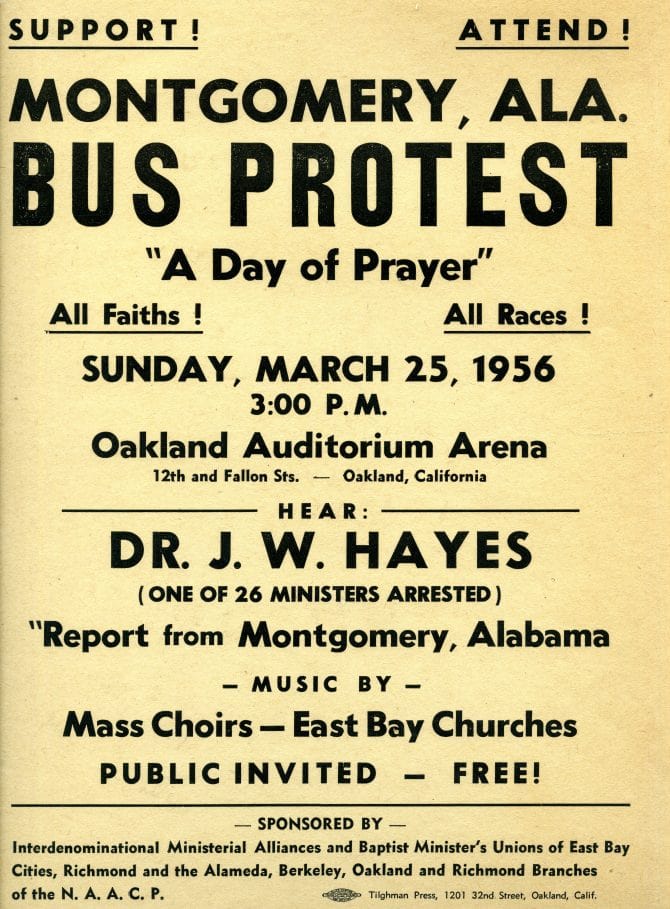
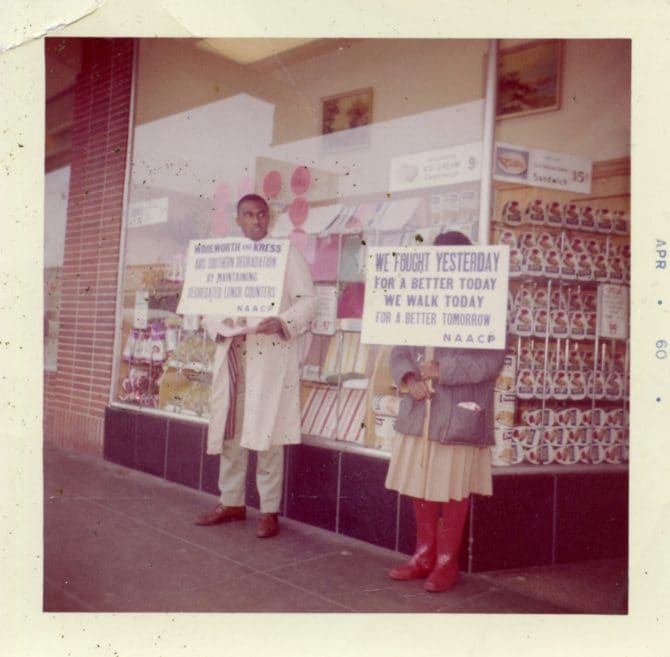
Selected Archival Collections
Cottrell Laurence Dellums Papers. With the arrival of A. Philip Randolph in Oakland in the fall of 1925, Cottrell Laurence Dellums (1900-1989) began organizing Black porters on the Pacific coast under the newly formed Brotherhood of Sleeping Car Porters (BSCP). Many members, including Dellums, were fired for their union activities. After his dismissal by the Pullman Company in 1927, Dellums began assisting the union on a full-time basis and became National Vice-President of the BSCP in 1929. Dellums' participation in the BSCP led to his involvement in many facets of the civil rights movement as the union fought for the passage of fair employment legislation. He organized plans for a mass march on Washington in the late 1930s to demand jobs for African Americans in the defense industry. In the 1940s, Dellums joined the NAACP and worked with local branches to combat racial discrimination. Dellums was elected the first President of the West Coast Region of the NAACP in 1948. In 1959, Dellums received an appointment from Gov. Edmund G. Brown to serve on the newly established California Fair Employment Practices Commission. He became involved in investigations concerning racial discrimination in employment and housing and participated in working for the passage of the California Fair Employment Practices Act, the first anti-discriminatory law issued in the country. The C.L. Dellums papers provide unqiue insight into Dellums' long and storied career as a civil rights activist and labor leader. [View items online]
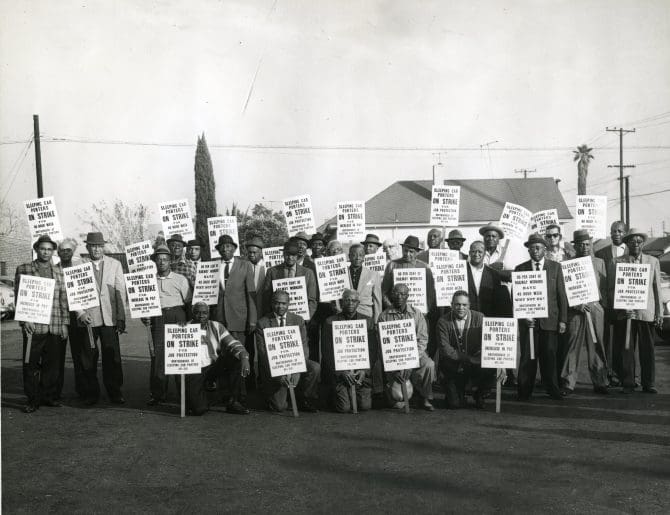
Frances Albrier Papers. During the late 1930s, social activist Frances Albrier (1898-1987) became active in a number of different political and civil rights issues. In 1938, she became the first woman elected to the Alameda County Democratic Central Committee. The following year she became the first woman to run for the Berkeley City Council, led the Citizen’s Employment Council’s “Don’t Buy Where You Can’t Work” campaign, and organized the East Bay Women's Welfare Club, a women’s group which advocated for the hiring of Black teachers in the Berkeley Unified School District. During the 1940s, she continued to be active in a number of women's, civil rights, and union organizations. After her application to become a welder was denied because Blacks did not have an auxiliary union in Richmond, she garnered political pressure in the Black community forcing Kaiser Shipyards to hire her making her the first Black woman welder during the war. For her community service and many contributions in civil rights to the Bay Area, the City of Berkeley re-named the San Pablo Park Community Center in her honor in 1984.
Henry Williams Jr. Film Collection. The Henry Williams Jr. Film Collection consists of film and audiotape mostly documenting the Black Panther Party and student and union protest movements of the late 1960s. The Black Panther Party film reels include outtakes and b-roll footage shot in preparation of the California Newsreel film MayDay at a Free Huey P. Newton rally. Also documented is the Black Panther Party National Conference for a United Front Against Fascism held at the Oakland Auditorium on July 18, 1969. Film footage includes Kathleen Cleaver, Bobby Seale, Huey Newton, and other party leaders. [View online]
The union and student protest film consists of assorted footage of protest rallies in the late 1960s and 1970s, and includes footage of Vietnam War protests, UAW and OCAW union strikes, the Farah Manufacturing Company strike of 1972, and student protests at high schools in Oakland, California following the police shooting of Melvin Black in 1979. [View online]
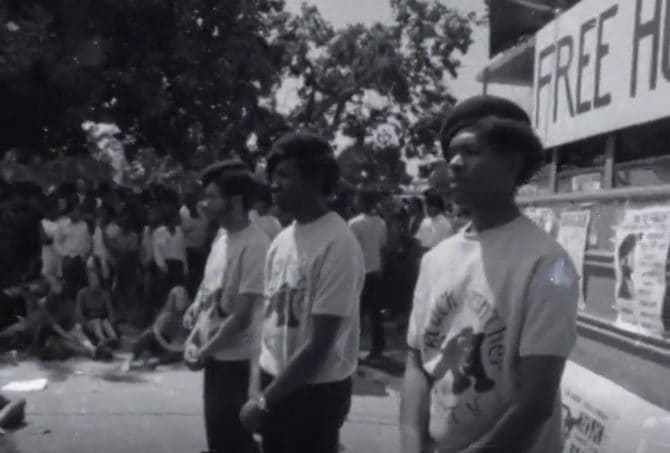
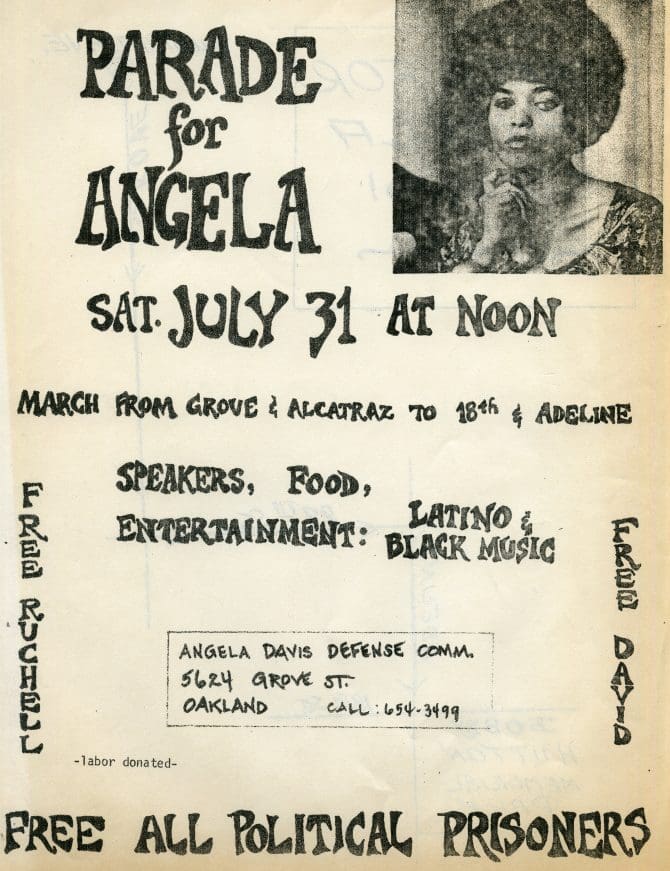
Black Panther Black Community News Service Collection. The Black Panther Black Community News Service Collection consists of 420 newspapers published by the Black Panther Party between 1967-1980. Each issue was between 16-28 pages and featured a range of articles and op-eds on the activities of the party, Black power, police brutality, communism, and party leadership. [Issues of the The Black Panther are available to view digitally on Alexander Street using your Oakland Public Library card]
The Flatlands Newspaper Collection. The Flatlands newspaper was an independent newspaper printed in Oakland from 1966-1968[?] and focused on issues related to poverty, education, housing, police brutality, and politics in East and West Oakland. The newspaper’s slogan was “tell it like it is and do what is needed” and advocated for government accountability and reform for those affected and displaced by housing developments and Bay Area Rapid Transit (BART). [View online]
Jonathan Eubanks Photograph Collection. The Jonathan Eubanks Photograph Collection includes seven photographs of Black Panther Party members at a “Free Huey” rally held in 1969, including portraits of prominent party members Stokely Carmichael, Eldridge and Kathleen Cleaver, and Bobby Seale.
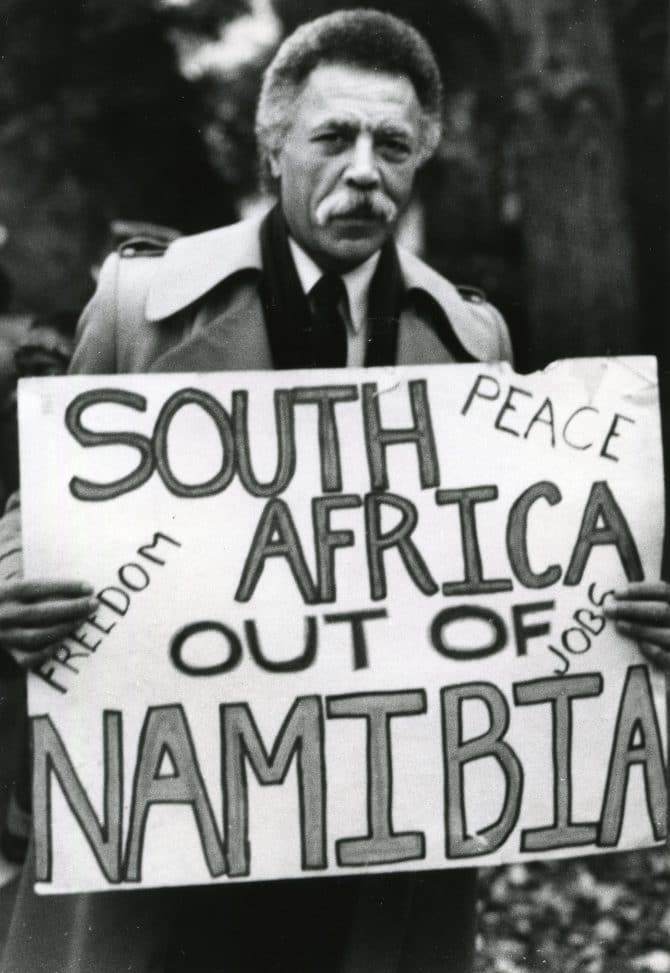
Ronald V. Dellums Congressional Papers. Congressmember Dellums' firm stand against, and Congressional leadership in the ending of, U.S. aid for the apartheid government in South Africa culminated in the passing of the Comprehensive Anti-Apartheid Act of 1986. Included in the Dellums Congressional Papers are evidence of his support of anti-apartheid and South Africa embassy protest. Also included is an op ed piece written by Dellums on "How Protest Takes Root" (1984).
Mildred Pitts Walter Papers. The Mildred Pitts Walter papers document Mildred and Earl Walter’s participation in civil rights protests in Los Angeles in the 1960s as part of the Los Angeles branch of the Congress of Racial Equality (C.O.R.E.) and as parents at Manual Arts High School. The Walters both became active members of the Los Angeles Chapter of the Congress of Racial Equality (C.O.R.E.) fighting for fair employment and fair housing. They picketed banks, retail stores, and other businesses in central Los Angeles that were not hiring non-whites for non-menial positions. Earl Walter served as the chapter’s branch chairman and they sued builders that would not sell houses to non-white homebuyers and led voter registration drives and de-segregation efforts in the American South.
Tarea Hall and William Pittman Papers. In the 1930s,Tarea Hall Pittman (1903-1991) became active in civil rights organizations, serving as president of the California State Association of Colored Women’s Clubs from 1936-1938 and organizing West Coast branches of the National Negro Congress. She was an active member of the NAACP serving in various roles as an officer of the Alameda County Chapter of the NAACP, Regional Director of the West Coast Region, and Regional Acting Secretary of the NAACP. As part of her service with the NAACP, she advocated for a number of significant civil rights issues including organizing protests to force war industries to hire African American workers during World War II, fighting to abolish the segregation of the Oakland Fire Department in 1952, and lobbying for the passage of fair employment practices legislation in California, Arizona, Alaska, and Nevada.
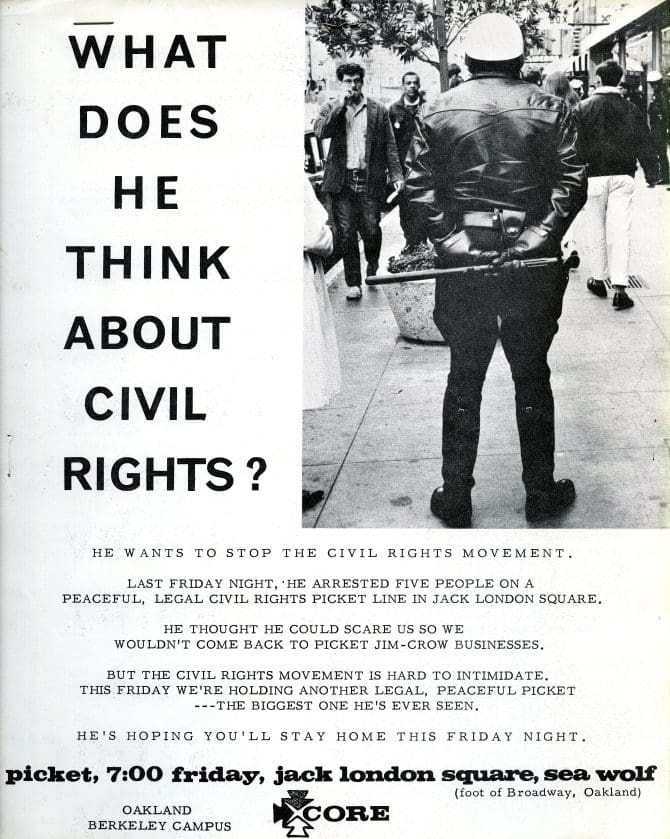
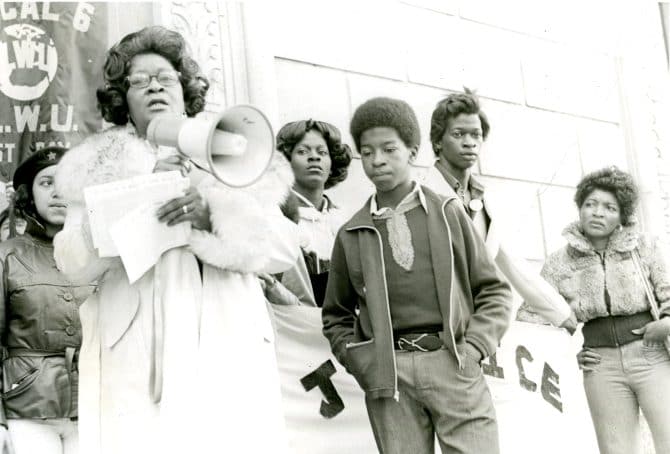
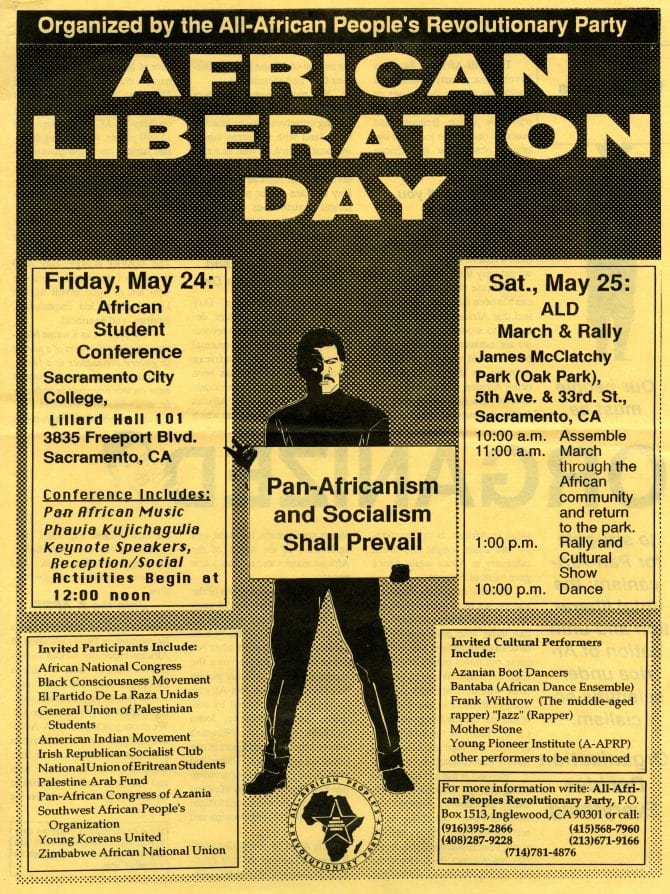
Charlesetta Braggs-Ford Papers. The Charlesetta Braggs-Ford Papers consists of reports, bulletins, correspondence, flyers, conference programs, papers, brochures, pamphlets, newsletters, and newspaper clippings that document the activities of the Richmond chapter of the Congress of Racial Equality (CORE). The collection documents general activities of regional CORE groups in sit-ins, picketing demonstrations, and other civil rights actions around fair employment, housing and police brutality towards African Americans.
Savannah A. Van Dyke Bello Papers. In 1963, together with Charlesetta Braggs-Ford, Van Dyke Bello founded the Richmond chapter of the Congress of Racial Equality (CORE) to address discriminatory practices in local housing and employment. Richmond CORE focused on issues related to fair employment and housing, schooling, accurate newspaper coverage, and police brutality towards African Americans. Bello was active in sit next hit -ins, picketing and negotiation projects with the Richmond Housing Authority and the Richmond Unified School District.
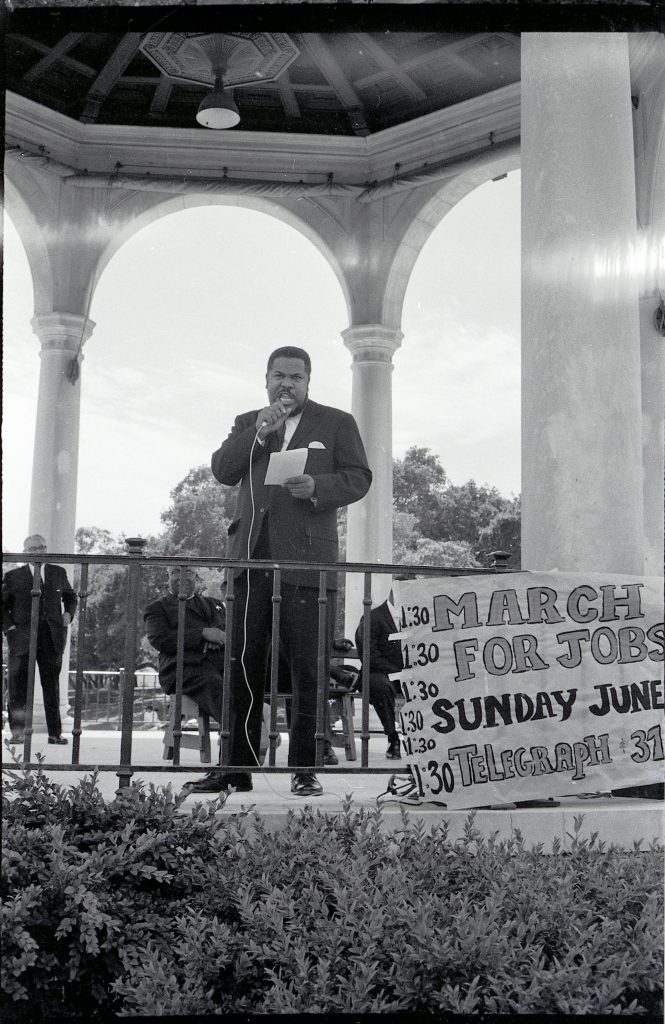
W. Hazaiah Williams Papers. Includes photographs of theologian, civil rights activist, and educator William Hazaiah Williams Jr. (1930-1999) speaking at the June 5, 1966 March for Jobs and BART rally sponsored by Justice on Bay Area Rapid Transit (JOBART). JOBART was established in 1966 to protest hiring practices of the Bay Area Rapid Transit Distrcit.
Edward E. Schaupp Papers. The Edward E. Schaupp papers includes artifacts, ephemera, and photographs mostly related to the civil rights movement in the 1960s. The collection consist of eight protest buttons related to SNCC, C.O.R.E., fair housing, and the March on Washington, two arm/head bands, an invitation to the Berkeley Chapter of the Congress of Racial Equality sip, and a letter from attorney William J. Woods informing Schaupp of the dismissal of his ‘mass bust’ case.
Oakland Post Photograph Collection. The Oakland Post newspaper was founded by attorney Thomas L. Berkley and wife Velda M. Berkley in 1963. Published weekly, the newspaper was dedicated to covering the major issues confront African Americans in Oakland - education, civil rights, crime, employment, and the fight against racism. The Oakland Post Photograph Collection consists of 11,797 photographs appearing in the Oakland Post newspaper between 1963-2005. The collection documents significant social and political events in Oakland, California, including social protest movements during the 1960s-1980s.
Benjamin V. Williams Papers. As a television reporter at KPIX, Benjamin Vernon Williams (1927-2012) covered stories on the Free Speech Movement on the University of California, Berkeley, campus, Vietnam War protests, the assassination of Bobby Kennedy at the Ambassador Hotel in Los Angeles, California, the Black Panther Party, the Symbionese Liberation Army’s kidnapping of Patty Heart, and the trial of serial killer Juan Corona. [View online]
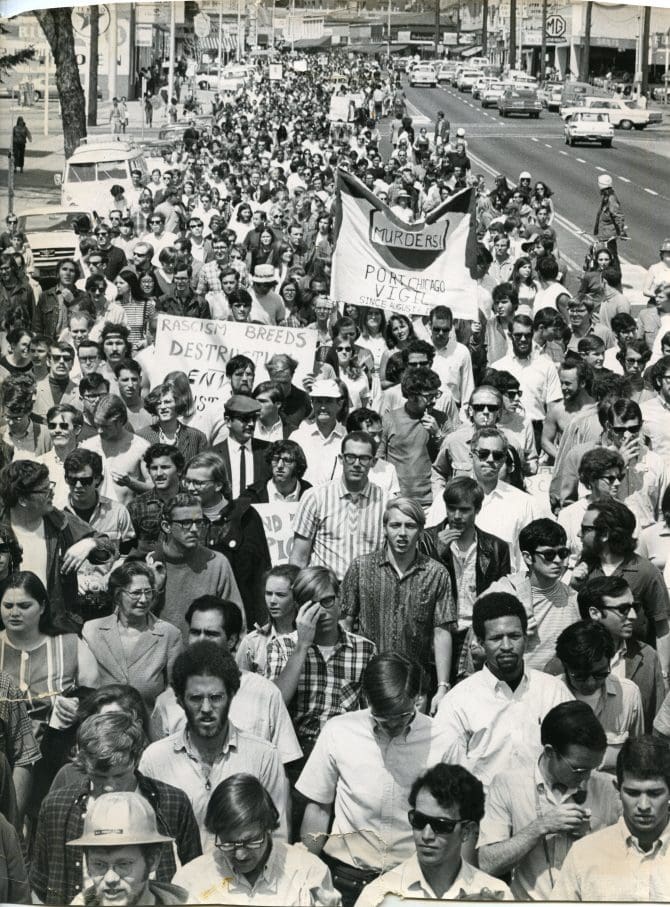
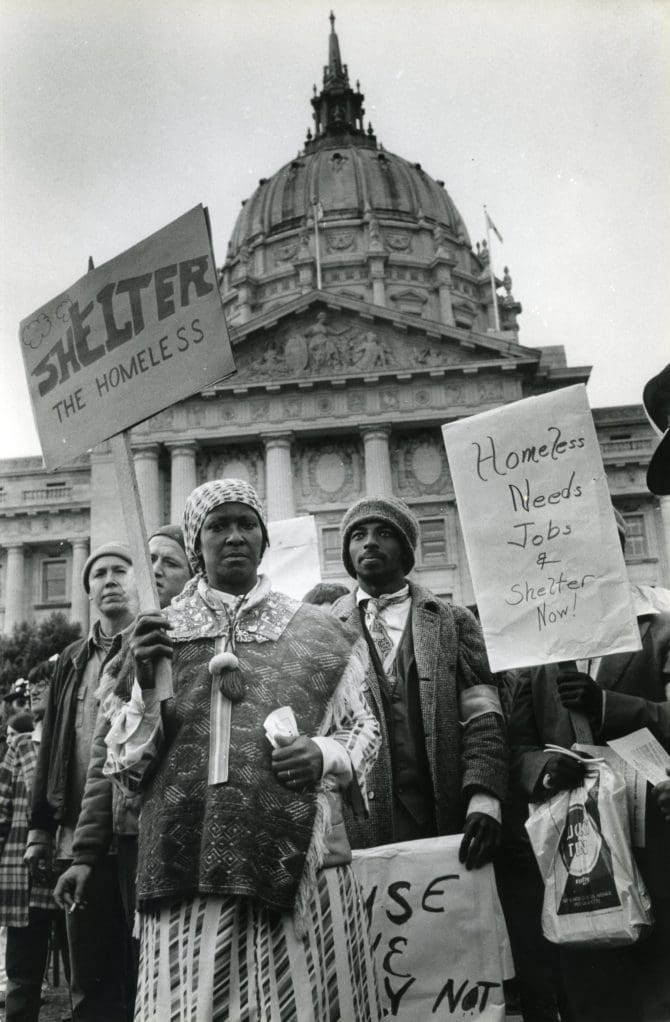
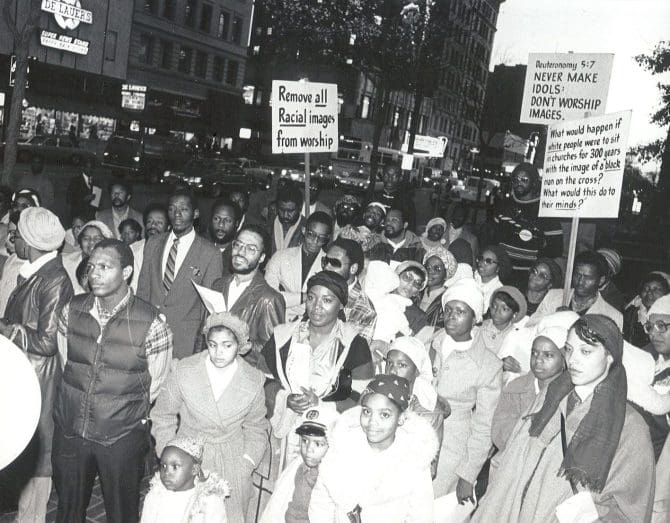
Additional Information
Search the library using the catalog.
Consult AAMLO's finding aids in the Online Archive of California.
We are working to create new resource guides. Have an idea for a new guide? Contact us at aamlo@oaklandlibrary.org.
